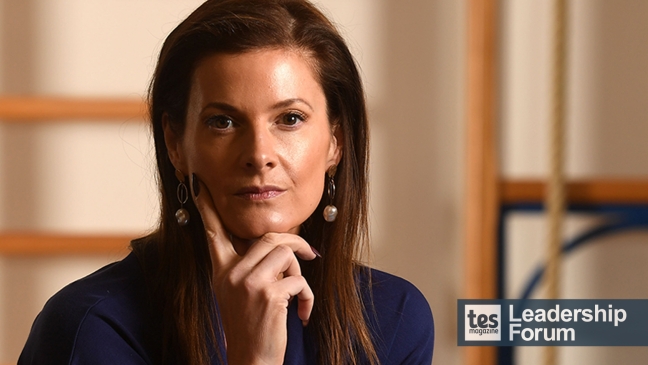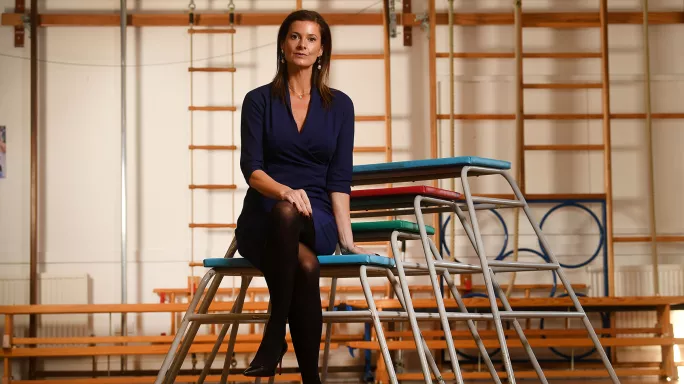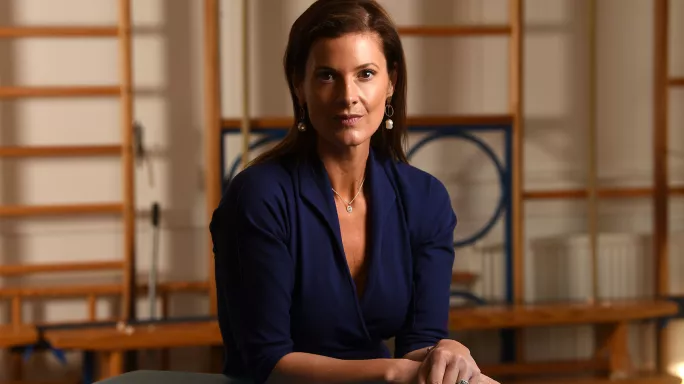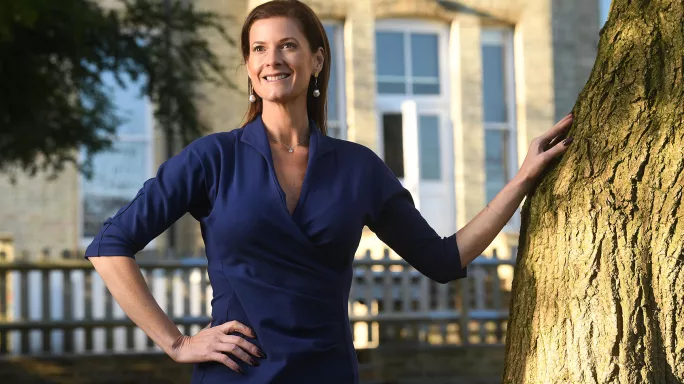
- Home
- Leadership
- Tips & Techniques
- Libby Nicholas: ‘If you’ve lost hope, get out of the job’
Libby Nicholas: ‘If you’ve lost hope, get out of the job’

Libby Nicholas is the managing director of Dukes Education, the UK’s largest group of independent schools. She was formerly chief executive of Astrea Academy Trust and regional director of education for the South and West at the Academies Enterprise Trust. She has also been a headteacher and former deputy director of education at the Girls’ Day School Trust. She writes:
Covid was such a test of leadership for all of us. Our role as leaders is to protect and to shield but during that intense period of school closures, and with everything else going on, our ability to do that was limited. We did what we could, but it was an entirely new situation and none of us knew what we were doing. So it was all about instinct. That period has had a lasting impact, I think, on leaders in the sector.
I was 25 years old when I first became a member of the senior leadership team. I acted up after the previous headteacher and deputy head left. It was also the school I went to as a child, so many of my colleagues had once taught me. I made so many mistakes, but the main one was that I tried to “perform” leadership rather than just being myself. I look back at that and, I’ll be honest, I cringe.
I have seen many leaders try to define themselves as the person who is “right”. That underpins all they do. I think that is a red herring. As a leader, you have probably never known less about some aspects of what you lead and you have to be comfortable with that. Recruit colleagues with more technical expertise than yourself. Leadership is a generalist sphere - as long as you can understand and analyse the narrative and then determine action, that is what matters.

There is nothing more dispiriting than doing a job you can’t do. Recognising that is so important as a leader, as you have a responsibility to be honest with people about their abilities and to act when the person is not right for the role, even after all the support possible is given. What I have found in those situations is that, for the person concerned, having that conversation can often be a moment of freedom. I always remember that I am the guardian of that person’s self-esteem; it is possible to have truthful, difficult conversations in a compassionate way.
Being transparent about vulnerability is critical, but that is not antithetical to strong decision-making. Compassion is not antithetical to courage - in fact, it takes courage to be compassionate.
You can’t lead well unless you know yourself really well - what you carry with you, what shadows you have in terms of trauma and unconscious bias. You need to know what might spark an emotional response, and you need to know how you can thrive as an individual. And we need to guard against insecurity - if insecurity dominates, then everything you do becomes about making up for that insecurity.
I don’t ever lose my temper - in our professional lives, it is important to always be courteous and calm. But I am firm. I strive for the right blend of humility and confidence.
I always manage my diary so I highlight critical impact opportunities. These are the moments where the person, or an exchange or decision, needs and deserves me to be at my best: letting someone go, for example, or a tricky meeting with a parent. I clear my diary so I can prepare, I make sure I eat and sleep well, I talk to my mentor or get some coaching, make sure I am prepared. I ensure I go into those meetings with no fear, as fear means bad decisions. If I don’t feel I am in that mindset I will cancel the meeting.

Leadership is about understanding what it is to lead a great life and enabling that for other people. You are responsible for other people’s days, their lives. That has to be your priority before any other key performance indicator.
One of the rules of public service leadership should be that you are only in post as the top leader for six to eight years, because beyond that, you are just marking your own homework. That comes from research outside of education and it shows that, after that time, you are prone to make decisions based on those you have made before, not the best decision for that time.
To lead an organisation you have to be completely on board with the key principles of why it exists. If you’re not, it simply isn’t going to work out well. One shouldn’t want to progress into the next leadership role in any organisation just for the sake of progression - the “fit”, with your own values and your own motivations, is crucial.
I always wanted to do something that was really hard. And I wanted to do that when I was young enough to commit to it. So when I was in my early thirties, I sought out that leadership challenge. You need to challenge yourself or you stagnate.

A key question I have learned to ask in meetings is: what do you want? People book time with you and they often don’t have a clear idea of what they want out of that meeting. I believe you have to be blunt in those situations, as your time, and theirs, is important. Is there something you need help with? Do you just need a chat? Do you want coaching or mentoring? All that is great, I can do that, but they need to know that is what they want and be able to articulate it. I tell them to come back to me when they know - this helps to focus the conversation and ensure the meeting has a clear outcome.
I don’t tend to worry about decisions after I have made them. I prepare for decisions in such a way that I know I have covered the angles and done my due diligence and, if you do that - if you take the time to pause - you are usually sound in your reasons for a decision, even if that decision turns out to be the wrong one. You can’t control the outcome but you can make sure the process is right.
If you make a decision that turns out to be wrong, it is stronger to apologise and change course rather than stand stubbornly with it. Acknowledging mistakes and apologising when appropriate means you are authentically leading rather than performing the role.
You need hope as a leader. If you don’t have hope, you need to get out of that job: you can’t do it effectively because you have lost the capacity to believe you can make a change. Hope for a better future and the will to make it happen - that is the reason we lead.
You need a Tes subscription to read this article
Subscribe now to read this article and get other subscriber-only content:
- Unlimited access to all Tes magazine content
- Exclusive subscriber-only stories
- Award-winning email newsletters
- Unlimited access to all Tes magazine content
- Exclusive subscriber-only stories
- Award-winning email newsletters
You need a subscription to read this article
Subscribe now to read this article and get other subscriber-only content, including:
- Unlimited access to all Tes magazine content
- Exclusive subscriber-only stories
- Award-winning email newsletters
- Unlimited access to all Tes magazine content
- Exclusive subscriber-only stories
- Award-winning email newsletters
topics in this article




